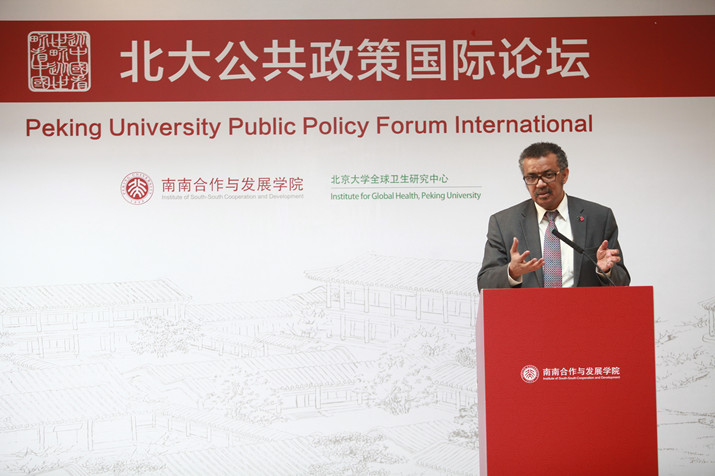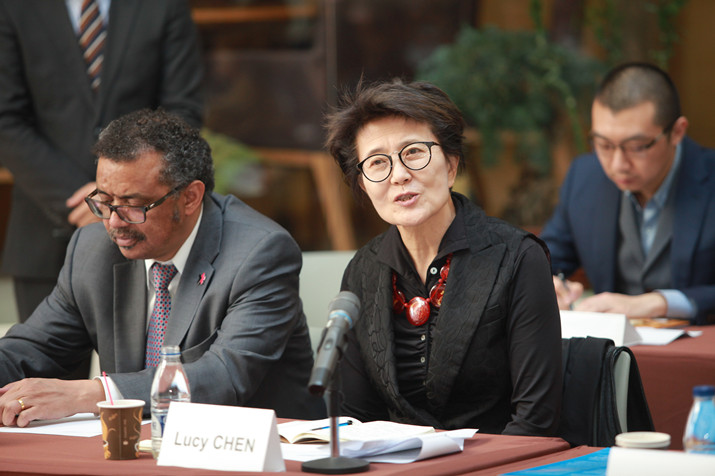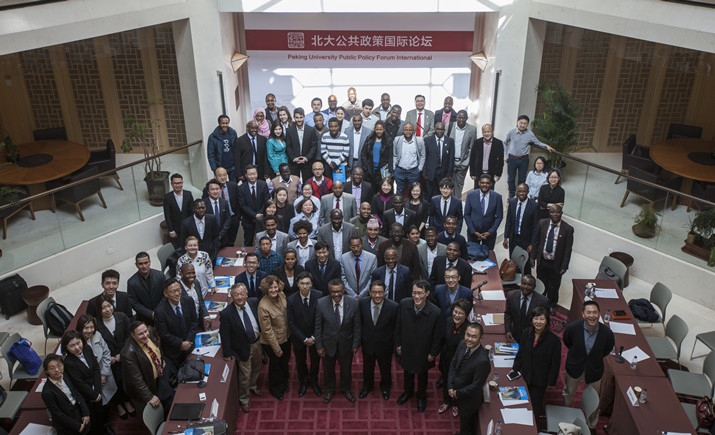|
||||||||||
| Home Nation World Business Opinion Lifestyle ChinAfrica Multimedia Columnists Documents Special Reports |
|
||||||||||
| Home Nation World Business Opinion Lifestyle ChinAfrica Multimedia Columnists Documents Special Reports |
| Africa |
| Strengthening China-Africa Health Cooperation |
| China plays a bigger role in strengthening Africa's health capacity building |
| By Liu Jian | Web Exclusive ·2017-03-16 |

China could play a bigger role in strengthening health capacity building in African countries, said Dr. Tedros Adhanom Ghebreyesus, Ethiopia's Minister of Foreign Affairs and candidate for Director General of the World Health Organization (WHO), at the Peking University Public Policy Forum International in Beijing on March 14.
As early as the 1960s, the China-Africa health cooperation stood as a good example of South-South cooperation, said Ghebreyesus in his keynote speech titled Leadership for Global Health. At present, in response to the challenges of global health, "there is great potential for cooperation between China and African countries," he said.
He believes China can help improve African countries' capacity for independent and sustainable development in the health sector. "As China is taking the lead in the manufacturing sector, it can help strengthen the pharmaceutical production capacity in African countries," he said. "This will help address medicine shortage in Africa and make essential medicines more accessible and affordable," he added.
Ghebreyesus also stressed the importance of public health emergency preparation. "In today's increasingly interconnected world, public health emergencies can affect anyone, anywhere, and the Ebola crisis in West Africa showed us the dangers of being unprepared," he said.

Lessons should be learned to strengthen the capacity of countries to respond to public health emergencies, he said, adding that he appreciated China's contribution during the Ebola epidemic.
"Therefore, a key priority must be the development of resilient and robust global and local health systems capable of preventing, detecting and responding to public health emergencies," he stressed.
As a candidate for Director General of WHO, he said he believes in the power of the organization to make a tangible, positive impact. He said he would focus on five key priorities: universal health coverage, health security, women, children and adolescent health, health impacts of climate and environmental change, as well as a transformed WHO.
The forum was co-organized by Peking University's Institute of South-South Cooperation and Development and the Institute for Global Health. Around 100 representatives from government departments, universities, research institutes, companies, media and non-governmental organizations attended the event and discussed issues related to global health.

Around 100 participants attend the forum and discuss global health issues (COURTESY PHOTO)
|
||
| About Us | Contact Us | Advertise with Us | Subscribe |
| Copyright Beijing Review All rights reserved 京ICP备08005356号-5 京公网安备110102005860号 |